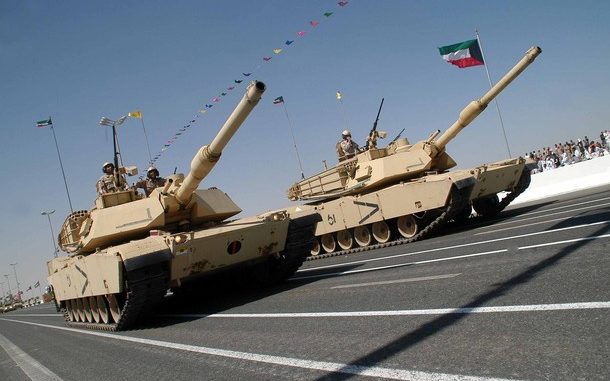On 13 and 16 October 2017, the United States Government approved the sale of weapons worth $371.6 million to Kuwait, stating that the sale “will contribute to the foreign policy and national security of the United States by helping to improve the security of a friendly country.” These sales come amid the ongoing diplomatic crisis pitting most of the Gulf Cooperation Council (GCC) countries against Qatar, and Kuwait’s involvement in the devastating Saudi-led bombing campaign in Yemen, to which the country has contributed at least 15 fighter jets. The use of US-manufactured planes in the attacks, which may amount to war crimes and which are exacerbating an ongoing humanitarian crisis in Yemen, deepens American complicity in the documented killing of more than 13,800 Yemenis in the civil war, as well as human rights abuses committed by Saudi Arabia and allies. Moreover, if allowed to proceed, the arms sales to Kuwait will contradict the stated position of Senate Foreign Relations Committee Chairman Bob Corker (R-TN), further undermining his effort to defuse the Qatar crisis by committing to block any new weapons deals with the GCC states.
Kuwait is a main US ally the Gulf region, and it largely relies on the American military for its security. For example, in 1987 the US established a maritime protection regime to ensure the freedom of navigation for 11 Kuwaiti tankers, and it led the operation to push Saddam Hussein’s forces out of Kuwait in 1991. Since then, the US has provided Kuwait with extensive defense assistance, and it has used bases there to support military operations throughout the region, including the 2003 invasion of Iraq, resulting in its designation as a Major Non-NATO Ally by the Bush administration. This partnership remains ongoing, with Kuwait currently providing military, diplomatic, and intelligence assistance to the US-led campaign against international terrorism.
The US is also one of the country’s main arms providers. Since 1992, the US has sold over $6.8 billion in weapons to Kuwait, with recent deals in January and September 2017. Such sales have continued despite a report by Amnesty International showing that the US had failed to keep track of over $1 billion worth of arms transferred to Kuwait and Iraq for use by the Iraqi military, which the organization concluded is a “worrying insight into the US Army’s flawed – and potentially dangerous – system for controlling millions of dollars’ worth of arms transfers to a hugely volatile region.”
The US maintains similar defense relationships with other countries of the Gulf. For example, the US is the biggest arms supplier to Saudi Arabia, providing the kingdom with over half of its weapons imports. During a recent visit to the kingdom, President Donald Trump signed an arms deal for a total of $109.5 billion, the largest single defense deal ever completed with the Gulf country. President Trump also reversed a hold placed by the Obama administration on the sale of precision guided munitions to Riyadh after the Saudi-led coalition’s operations in Yemen were accused of war crimes. Similar deals have been reached with the Bahraini government, which agreed to a potential purchase of military equipment for approximately $3.8 billion. This agreement includes F-16 combat aircraft that had previously been restricted by reform conditions imposed under the Obama administration over human rights abuses committed by the Bahraini government. The Trump administration’s reversals on these holds emphasizes its broader decoupling of human rights concerns from expanding security relationships with the Arab Gulf states.
Yet, in June 2017, Senator Corker sent a letter to Secretary of State Rex Tillerson announcing he would no longer provide clearances on arms sales to the GCC member states until the ongoing Qatar crisis is resolved. Senator Corker’s letter indicated that the arm sales to GCC countries would be halted while they work to obtain a “better understanding” of how the GCC will “reunify.” Moreover, arms sales to the GCC states have come under wider bipartisan scrutiny throughout Congress, culminating in the recent resolution H.Con.Res.81 introduced by Reps. Ro Khanna (D-CA), Thomas Massie (R-KY), Mark Pocan (D-WI), and Walter Jones (R-NC), calling for the calling for the withdrawal of US support for the Saudi-led operation in Yemen.
Nevertheless, Senator Corker has remained silent as these new arms sales to Kuwait have been authorized, and he has deferred responsibility for the Bahraini deal, arguing that the F-16 agreement had been first broached under the Obama administration and therefore predates his letter. Although this argument clearly cannot extend to the new aspects of the Bahraini arms deal or to the Kuwaiti agreements, it does not appear that the Senator is upholding his commitment to block them. Just last week in fact, on 1 November 2017, the Defense Security Cooperation Agency announced yet another major arms sale to the Gulf – this time a $1.1 billion deal for developing Qatar’s “F-15QA multi-role fighter aircraft program.” The Trump administration is now even considering “preliminary talks” with the UAE over a possible sale of Lockheed Martin’s F-35 joint strike fighter, a move previously ruled out under by former president Obama.
While there is growing support for holding arms sales to the GCC countries, it seems unlikely that the US will soon put an end to such lucrative partnerships. Efforts to at least condition these arms sales around some positive reform or policy objective, like the letter sent by Senator Bob Corker, will keep falling short unless Congress and the Trump administration show real political will to prioritize stability and human rights over profit.
Juan Carmelo Rodríguez Melián is an Advocacy Intern at ADHRB.





